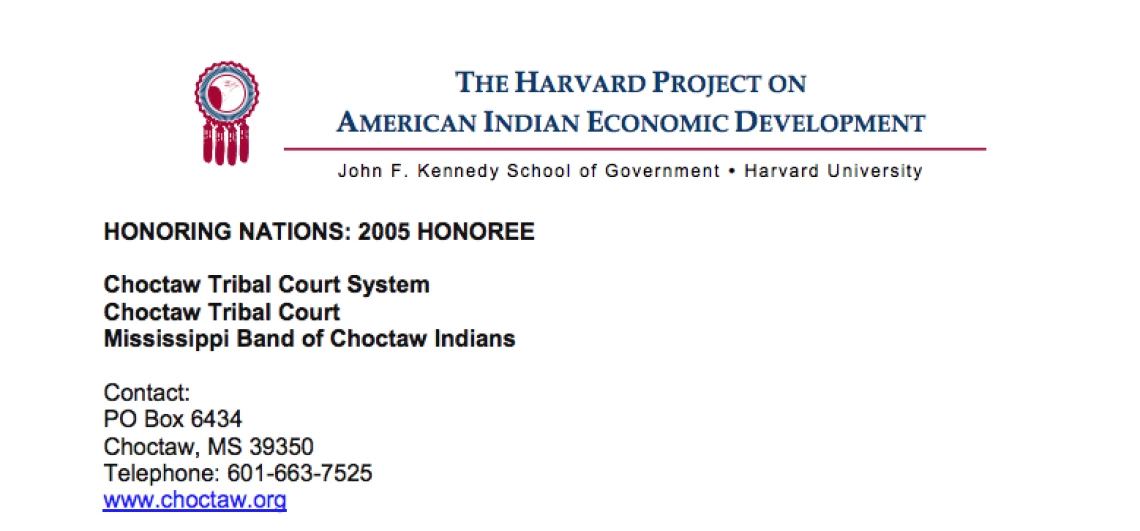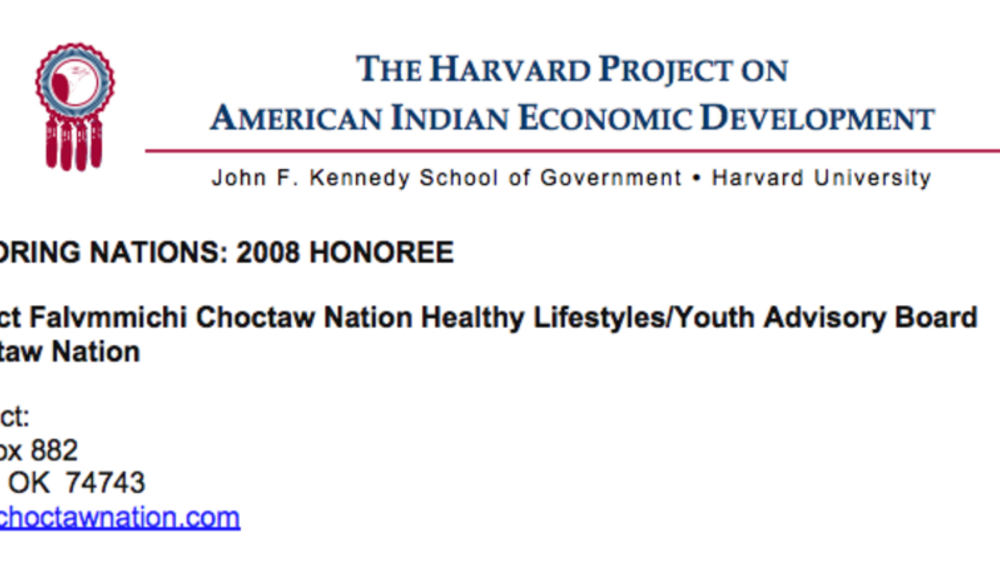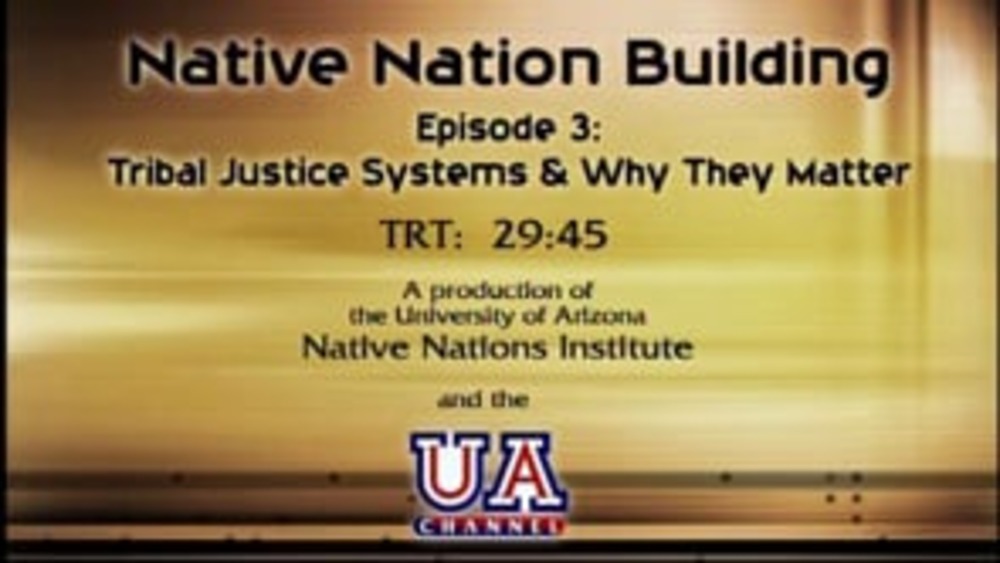Self-determination is the guiding principle behind all of the government initiatives undertaken by the Mississippi Band of Choctaw Indians. This nation has created a vibrant economy while investing resources into the preservation of Choctaw language and culture. At the heart of its success is its court system. Organized independently of elected leadership, the court provides an arena for fair and reliable dispute resolution. Intent on not becoming just another adversarial court of law, the Choctaw Tribal Court System strives to help both victims and offenders, and pays particular attention to tribal youth. By incorporating traditional Choctaw values of preserving peace, respecting personal dignity, and defending sovereignty in its law and judicial practice, the Mississippi Band of Choctaw created a comprehensive judicial system that responds to the needs of all its citizens.
Additional Information
"Choctaw Tribal Court System." Honoring Nations: 2005 Honoree. Harvard Project on American Indian Economic Development, John F. Kennedy School of Government, Harvard University. Cambridge, Massachusetts. 2006. Report.



